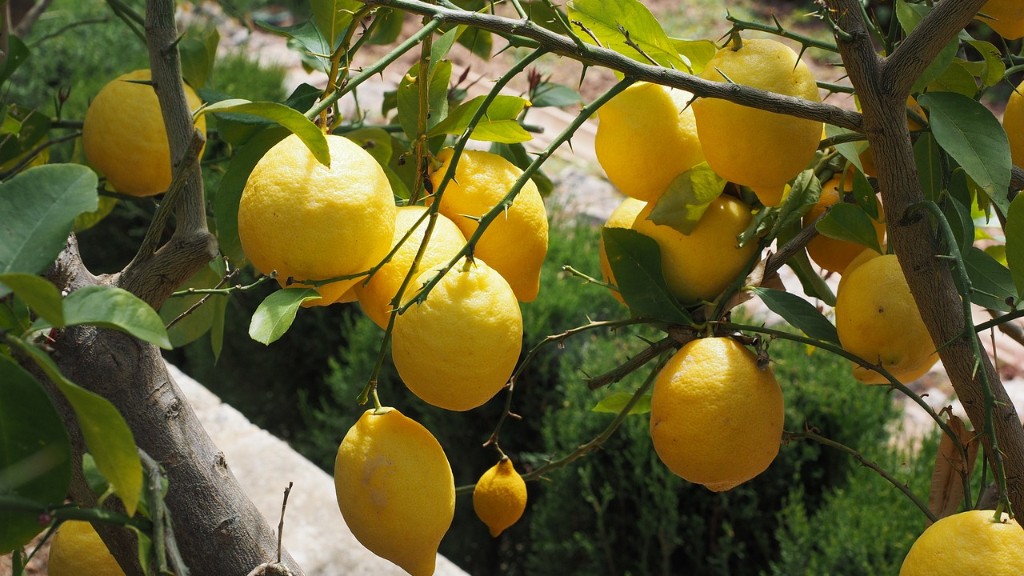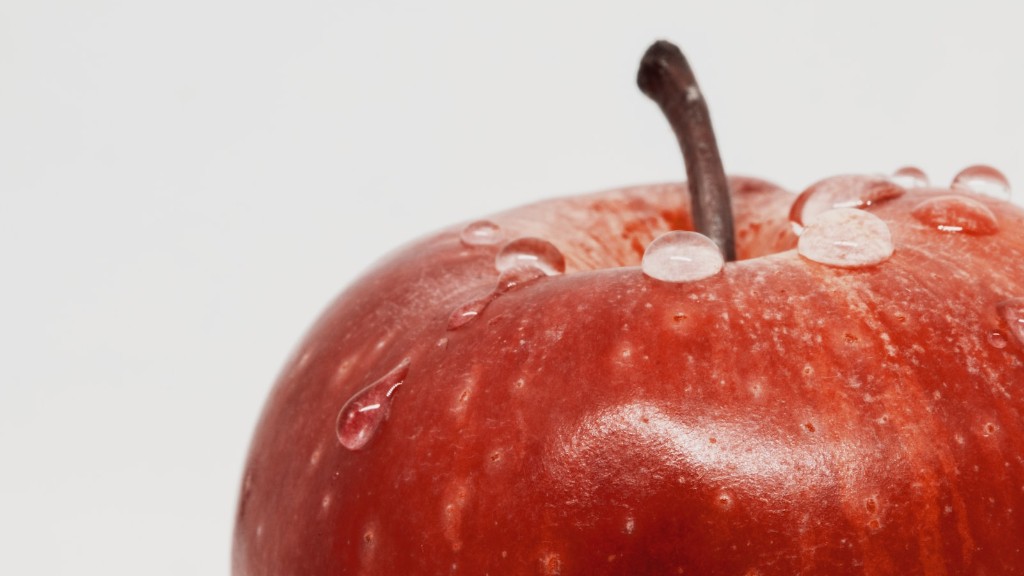Growing a healthy lemon tree can be tricky, but with proper maintenance and care, it is possible. The first step is to choose a good quality tree from a nursery. You should pick a tree that is within your budget, has a sturdy trunk, and is not too old or too young. Once you’ve chosen your tree, it’s time to start planting. Make sure to carefully read the directions on the label before planting your tree in the ideal spot. Choose an area where the tree will get plenty of sunlight and be protected from wind. Prep the soil before planting to ensure the tree has the best possible start.
Once planted, lemon trees need well-drained soil and regular watering. Water your tree deeply once a week to keep it happy and hydrated. During the dry summer months, you may need to water up to three times a week. While lemon trees need plenty of water, be careful not to overwater as this could cause root rot. Fertilizing is another key part of proper care. There are various fertilizers available, but make sure to follow the instructions on the package and apply it during the plant’s growing season.
Lemon trees also need plenty of pruning in order to produce bigger and more abundant fruits. Pruning can help ensure the tree is producing healthy fruits and leaves, as well as increase air circulation. If your tree is not producing many fruits, you can increase the number by pruning it regularly. You can also help your tree stay healthy by removing any diseased or dead branches. Lastly, it is important to protect your lemon tree from pests and diseases. If you notice any signs of damage, respond quickly by treating the tree with the proper remedies.
Citrus Tree Fertilizer
Lemon trees need special fertilizer designed for citrus trees in order to stay healthy and thrive. The best fertilizers generally contain nitrogen, phosphates, and potassium and are formulated specifically for citrus trees. Fertilizer is typically applied every two months around the outside of the tree’s root zone. Depending on your soil, you may also need to add supplemental iron, zinc, and manganese to the soil.
When applying citrus tree fertilizer, it is important to avoid adding too much at once. Start out with a smaller amount and spread it over the entire area around the tree. This will help make sure the soil is getting the optimal amount of nutrition. When fertilizing your lemon tree, be sure not to let it come into contact with the trunk or large branches. This could burn the tree and cause damage.
It is also a good idea to perform a soil test to determine the actual nutrient levels in your soil. This will help ensure you are not over- fertilizing. Lastly, avoid fertilizing when temperatures are high to prevent fertilizer burn. This can damage your tree and reduce the quality of its fruits.
Pest and Disease Control
One of the biggest challenges when it comes to growing a healthy lemon tree is controlling any pests or diseases. Pests can range from insects such as aphids, scale, and whiteflies, to fungi and bacteria. Keep an eye out for signs of infestation, such as curled or yellowing leaves. If you spot any pests, take measures to get rid of them quickly, either with a natural or chemical treatment.
There are a variety of diseases that can also threaten your lemon tree. The most common ones include fungal diseases such as citrus scab and powdery mildew. Other diseases include alternaria and root rot. To prevent these diseases, keep your tree’s leaves dry and its roots healthy. You can also treat the tree with a fungicide when needed. Lastly, make sure to inspect your lemon tree regularly for signs of damage.
Mulching and Weed Control
Mulching is an important part of maintaining a healthy lemon tree. It can help retain moisture and keep the soil temperature regulated, as well as keep weeds and pests away. Spread a few inches of mulch around your tree, being careful not to pile it too close to the trunk. You can use organic mulches such as leaves, sawdust, or grass clippings. Make sure to rake away any weeds that may have sprouted from beneath the mulch.
If you notice any weeds sprouting around your lemon tree, pull them up or use an herbicide to kill them. Weeds can compete with the tree for nutrients and moisture, and can also spread diseases. You can also spray your tree with an insecticidal soap or horticultural oil to keep pesky bugs at bay. Make sure to consult your local horticulturalist for guidance on the best pest control methods for your area.
Winter Protection
When cold winter temperatures hit, your lemon tree may need extra protection. Depending on the variety, some lemon trees can tolerate temperatures lower than 20 degrees Fahrenheit, while others cannot. To protect your tree from cold damage, wrap it with a blanket or burlap and make sure there are no leaks. You can also provide extra moisture to your tree by lightly misting it with lukewarm water during dry spells.
In areas with heavy snowfall, it is important to remove snow from the tree’s limbs. Snow can weigh down the limbs and cause breakage. If you notice any frost damage, trim off any dead or damaged leaves and branches; this will help the tree stay healthy and promote new growth. Lastly, when temperatures start to drop around your neighborhood, you can cover your lemon tree overnight with a frost blanket or sheet.
Proper Maintenance
Proper maintenance is the key to having a healthy and productive lemon tree. Make sure to inspect your tree regularly for any signs of infestation, disease, or damage. Keep an eye out for any yellowing leaves, dead branches, or insects and take steps to address them right away. When fertilizing and pruning, follow the instructions carefully and use the right products.
Be patient when it comes to your lemon tree; it may take several years before it starts producing fruit. Once it starts bearing fruit, it is important to pick the lemons as soon as they are ripe. Doing so will help encourage the tree to produce more fruits. Lastly, make sure to check your local gardening store for advice on how to care for your particular type of tree.



